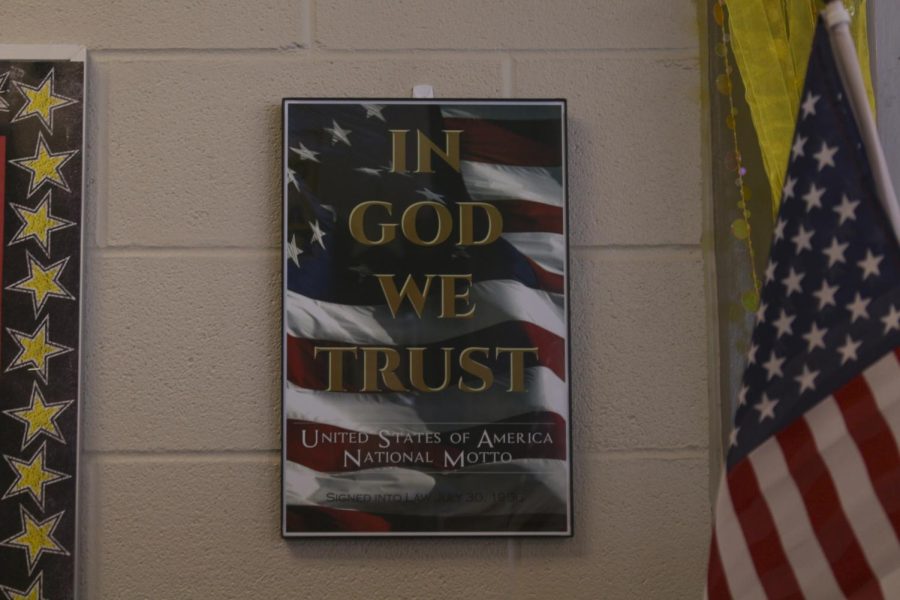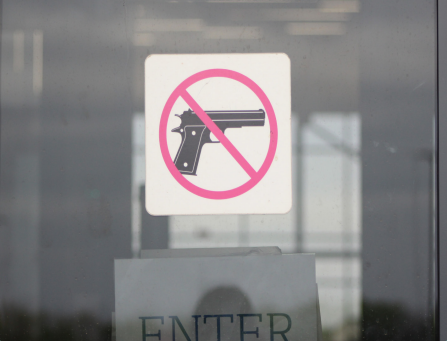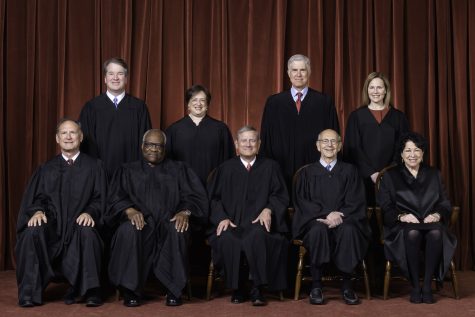Religion Doesn’t Belong in Public Schools
December 9, 2022
A new Texas law requires schools to display “In God We Trust” signs that have been donated to them. In 2020, The Kansas State Legislature proposed a bill that would have the same effect on Kansas schools, however the bill did not pass. As of now, Kansas teachers and staff have the option to hang such posters on their walls.
The Texas law is already facing criticism because it forces overt religious messages in public schools. The purpose of the law became more clear when “In God We Trust” signs written across rainbow backgrounds or in Arabic were rejected by the school board in Southlake, Texas.
The phrase “In God We Trust” is considered the national motto of the United States. The phrase became more commonly used during the Cold War era, when there was a rise in nationalist rhetoric, as well as religious fear-mongering. Communists were dubbed “Godless,” and for Americans, religion and patriotism went hand-in-hand.
The saying was adopted as the official national motto in 1956 by Dwight D. Eisenhower, who also added the phrase “under God” to the pledge of allegiance in 1954 in an attempt to solidify the United States as a religious country, therefore isolating it from the enemy Soviets and atheism as a whole.
Though the fear and repression during the era of the Red Scare died down in later years, the rhetoric and propaganda used during the time is comparable to many conservative tactics in the years following.
Today, atheism is a widely accepted ideology in the United States, and many criticize the inclusion of religious phrases and media in public spaces like schools. Religion should not affect law whatsoever. The Constitution calls for the separation of church and state, but conservatives have been trying to integrate religion, specifically Christianity, in governmental affairs. The new Texas law is no different.
The United States recognizes the freedom to practice any religion as an unalienable right. The Texas law is not reflective of this right. The Texas school board’s refusal to accept certain signs despite them meeting the requirements of the law shows that the law is intended to push a Christian agenda, not to encourage religious inclusion or acceptance.
We can only trust that the Kansas legislature aims to improve education in schools rather than indoctrinating students with religious messages, and that religion will stay off of our walls and out of our classrooms.











